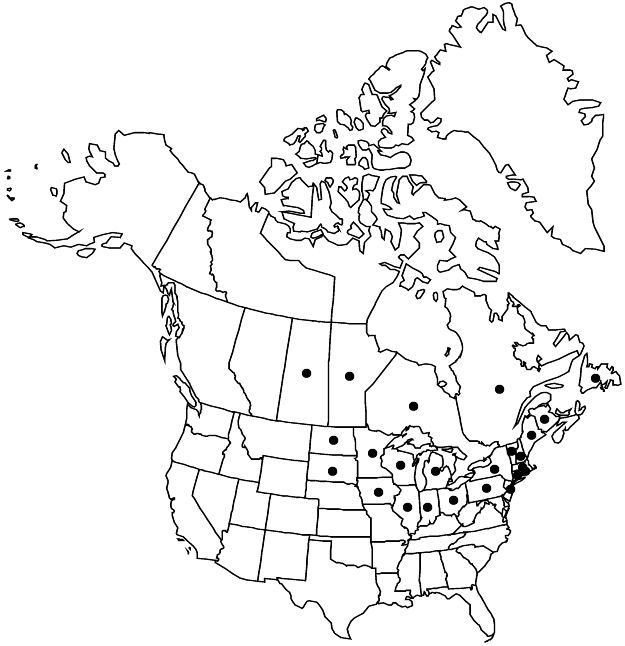Difference between revisions of "Parnassia glauca"
Autik. Bot., 42. 1840.
FNA>Volume Importer |
FNA>Volume Importer |
(No difference)
| |
Revision as of 18:17, 24 September 2019
Herbs with caudices. Stems 10–60 cm. Leaves: basal in rosettes; petiole 1.5–17 cm; blade (of larger leaves) oblong to orbiculate-ovate, 20–70 × 10–50 mm, longer than to ca. as long as wide, base cuneate to subcordate, apex obtuse to subacute; cauline on proximal 1/2 of stem or absent. Flowers: sepals reflexed in fruit, oblong, elliptic, or ovate, 2.5–5 mm, margins hyaline, 0.2–0.5 mm wide, entire, apex rounded; petals 5–12-veined, oblong to ovate, 9–18 × 6–10 mm, length 2–4 times sepals, base cuneate to rounded, margins entire or undulate; stamens 7–10 mm; anthers 1.2–2.8 mm; staminodes 3-fid almost to base, gland-tipped, 4–7 mm, shorter than to ca. equaling stamens, apical glands elliptic-oblong to subreniform, 0.3–0.7 mm; ovary green. Capsules 12–14 mm. 2n = 32.
Phenology: Flowering summer–early fall.
Habitat: Seasonally wet meadows, shores, fens, ditches, seeps, wet, calcareous soils.
Elevation: 50–700 m.
Distribution

Man., N.B., Nfld. and Labr. (Nfld.), Ont., Que., Sask., Conn., Ill., Ind., Iowa, Maine, Mass., Mich., Minn., N.H., N.J., N.Y., N.Dak., Ohio, Pa., R.I., S.Dak., Vt., Wis.
Discussion
The name Parnassia caroliniana has been misapplied to this species (for example, N. L. Britton and A. Brown 1913).
Selected References
None.